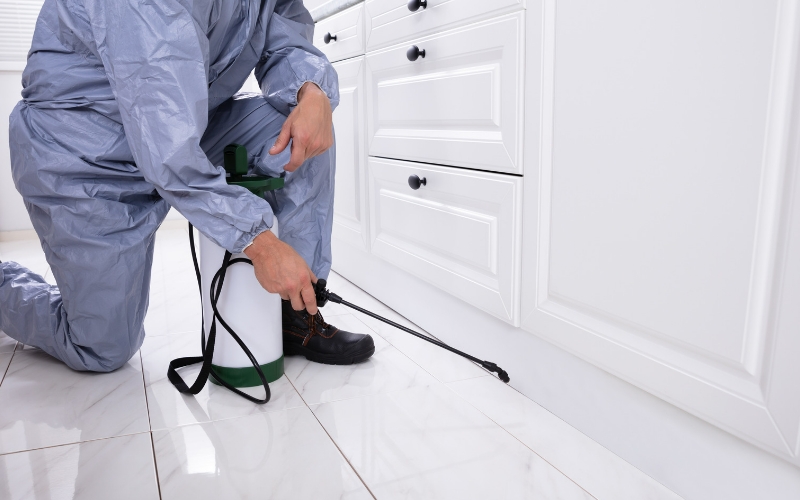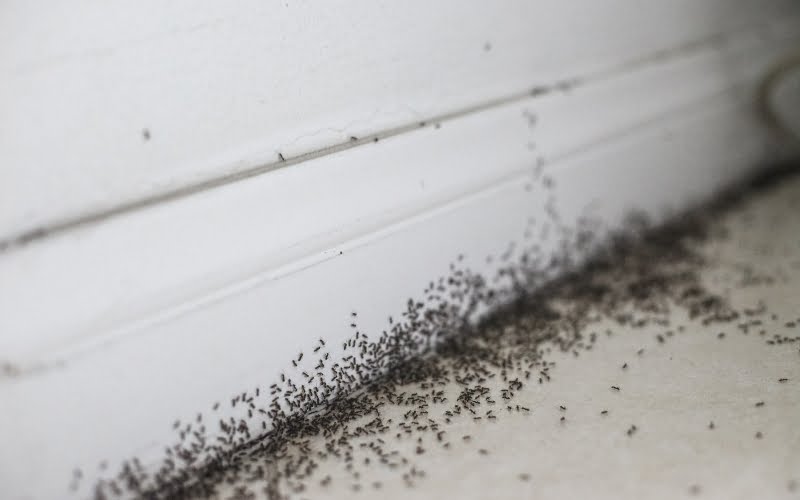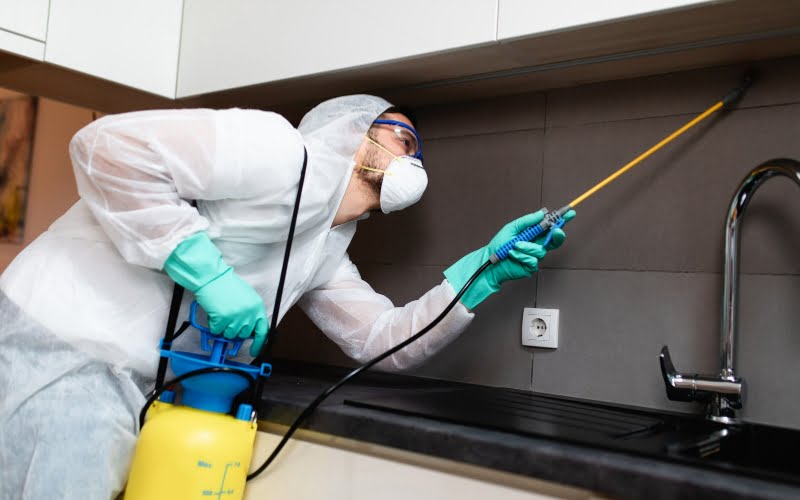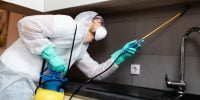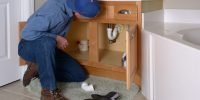Last Updated on May 8, 2024 by Kelvin Nielsen
Who is responsible for pest control in Georgia, is it the tenant or the landlord? This is a common question that tenants often ask. However, the answer is never straightforward. And as with many other things in life, it depends!
And specifically, it depends on a variety of factors, including the state law, as well as what caused the infestation in the first place.
As a tenant, you have a right to live in a home that meets the basic safety and health codes. A home-infested home is uninhabitable and unfit for human habitation.
In this blog, we’ll walk you through everything you need to know regarding responsibility for pest control in Georgia.
Are Landlords Responsible for Pest Control in Georgia?
Before we can answer this question, let’s begin by looking at the common types of pests in Georgia.
Georgia’s climate is warm and humid – a welcoming environment for a variety of pests. The following are common pests tenants often have to contend with.
- Cockroaches. These are the most common indoor pests in Georgia. They particularly thrive in warm, humid, and unhygienic conditions and quickly spread diseases.
- Rodents. Another problem for renters in Georgia is mice and rats. These will chew on furniture, wires, and insulation.
- Bed bugs. These can be nightmarish. Their bites can be itchy and irritating.
- Mosquitoes. The warm and humid climate in Georgia creates a particularly conducive environment for these pests. Mosquitoes not only bite, but can also transmit diseases like Zika and West Nile virus.
Other pests common in Georgia include spiders and ants.
Left unaddressed, these pests can cause significant damage to your home. From damage to insulation, furniture, and electrical components, to contamination of food and transmission of diseases.
Fixing pest damage isn’t cheap, either. It can range from about $3000 to $8000, at least according to Forbes.com.
What are the Telltale Signs of a Pest Infestation in your Georgia Home?
The following signs will tell you whether or not you have pests in your home.
- The pests are visible. If it looks like a duck, swims like a duck, and quacks like a duck, then it probably is a duck.
- There are signs. Some pests are “undercover operatives”. Bed bugs, for instance, are difficult to identify. They not only strike at night, but the young ones are often translucent and tough to spot. Fortunately, even with their covert operations, they still leave signs. Common signs to be on the lookout for include webs, eggs, droppings, and property damage.
- There is a distinctive odor in your home. Rodents, cockroaches, and other pests have a distinctive odor. For example, rodents reek of a foul odor due to their urine. It is especially noticeable if you have an active infestation.
- You can hear them. You may be able to hear some pests in your home squeaking, crawling, chewing, thumping, or scratching.
- You may begin to experience health problems. Most pests will have a bearing on one’s health. For instance, termites can trigger allergic reactions. Rodents can cause illness to both humans and pests due to the Salmonella bacteria.
When are Landlords Responsible for Pest Control in Georgia?
The Georgia “Implied Warranty of Habitability” requires landlords to provide a habitable living space to tenants. Among other things, this legal requirement requires that landlords provide and maintain a pest-free unit.
The unit must be free from pests, such as rodents, termites, bed bugs, mice, fleas, and cockroaches.
As per the GA landlord pest control laws, you can only hold a landlord liable for pest control in the following scenarios.
#1: The pest infestation is caused by the property’s condition.
Gaps, cracks, and holes in the wall or the foundation can allow pests to enter your home. In such a case, you may be able to hold the landlord liable for the pest control.
Apart from structural issues, failure by your landlord to repair leaks on time can also attract certain pests into your home. Pests like rats and cockroaches are particularly attracted to damp areas.
#2: The pest infestation existed before the tenant moved in.
As a renter, you are not responsible for repairing a pest infestation that existed before you moved in. That is the landlord’s responsibility.
You can only become responsible if the issue arose during the term of the tenancy and caused by your negligent actions.
#3: If pests are causing damage to the property.
Pests can cause damage to a property, both structurally and cosmetically. Termites can eat away at the structure, causing it to weaken and even lead to its eventual collapse. Ants can cause unsightly holes in walls by easting the soft, inner part of the wood. Rats and mice can chew through wires and cables.
The list goes on and on…
In such cases, the cost of fixing the pest damage would solely befall the landlord.
#4: If the landlord fails to respond to a repair or maintenance issue causing the pest infestation.
A pest infestation in a home may arise from a variety of sources, including poor maintenance. Clogged gutters, unkempt landscaping, roof leaks, leaky plumbing, and cracks in the foundation can all lead to pest infestations.
If you notify the landlord of such issues and they fail to respond on time and that leads to a pest infestation, the responsibility for pest control would squarely lie with them.
Georgia landlords have a duty to respond to requested maintenance issues within a “reasonable timeframe”.
When Are Tenants Responsible for Pest Control in Georgia?
Under GA landlord pest control laws, a tenant may also become responsible for pest control if the pest problem arises from their negligent actions.
You may become liable for pest control in the following circumstances.
- If you bring the pests into the property. For instance, if you bring in infested food or furniture.
- If you fail to take reasonable steps to prevent pests, such as by sealing left-over food.
- If you cause damage that provides an ingress point for pests into the property.
- If you fail to report maintenance issues on time, for instance, a leaky faucet.
- If you fail to keep your yard clean and free of debris.
- If you fail to repair any holes in screens or doors. .
How Long Do Landlords in Georgia have to Fix a Pest Infestation?
Under the state’s warranty of habitability, landlords must make repairs within a “reasonable timeframe” after proper notification.
On your part, you must provide the landlord with a proper written notice within a reasonable timeframe. Once you learn of the infestation, notify the landlord immediately to avoid further infestation.
If the landlord acts within a reasonable timeframe (1 to 2 days in case of severe infestation), then great! However, if the landlord ignores your notice for an unreasonable period, then you may be able to exercise some legal options.
What to do if Landlord Fails to Fix a Pest Problem in Georgia?
Georgia landlord-tenant law gives you certain options when the landlord fails to respond to repairs within a reasonable period. You can:
- Break your lease without penalty.
- Sue the landlord in court for negligence of their responsibilities.
- Repair the pest infestation yourself and then deduct appropriate costs from future rent payments.
Please note that you cannot withhold rent for repairs in Georgia.
Conclusion
Both landlords and tenants have certain responsibilities when it comes to pest infestations. Whether you or your landlord is responsible will depend on what caused the infestation in the first place.
Disclosure: The content herein isn’t a substitute for advice from a professional attorney. It’s only meant to serve educational purposes. If you have a specific question, kindly seek expert attorney services.
Sources: GA Code Title 44 Chapter 7, GA Landlord-Tenant Guidebook

Hi, I’m Kelvin Nielsen, an experienced landlord and accomplished real estate lawyer. My focus is on answering your questions about renting in the hopes of making your life as a renter or a landlord a bit easier.

